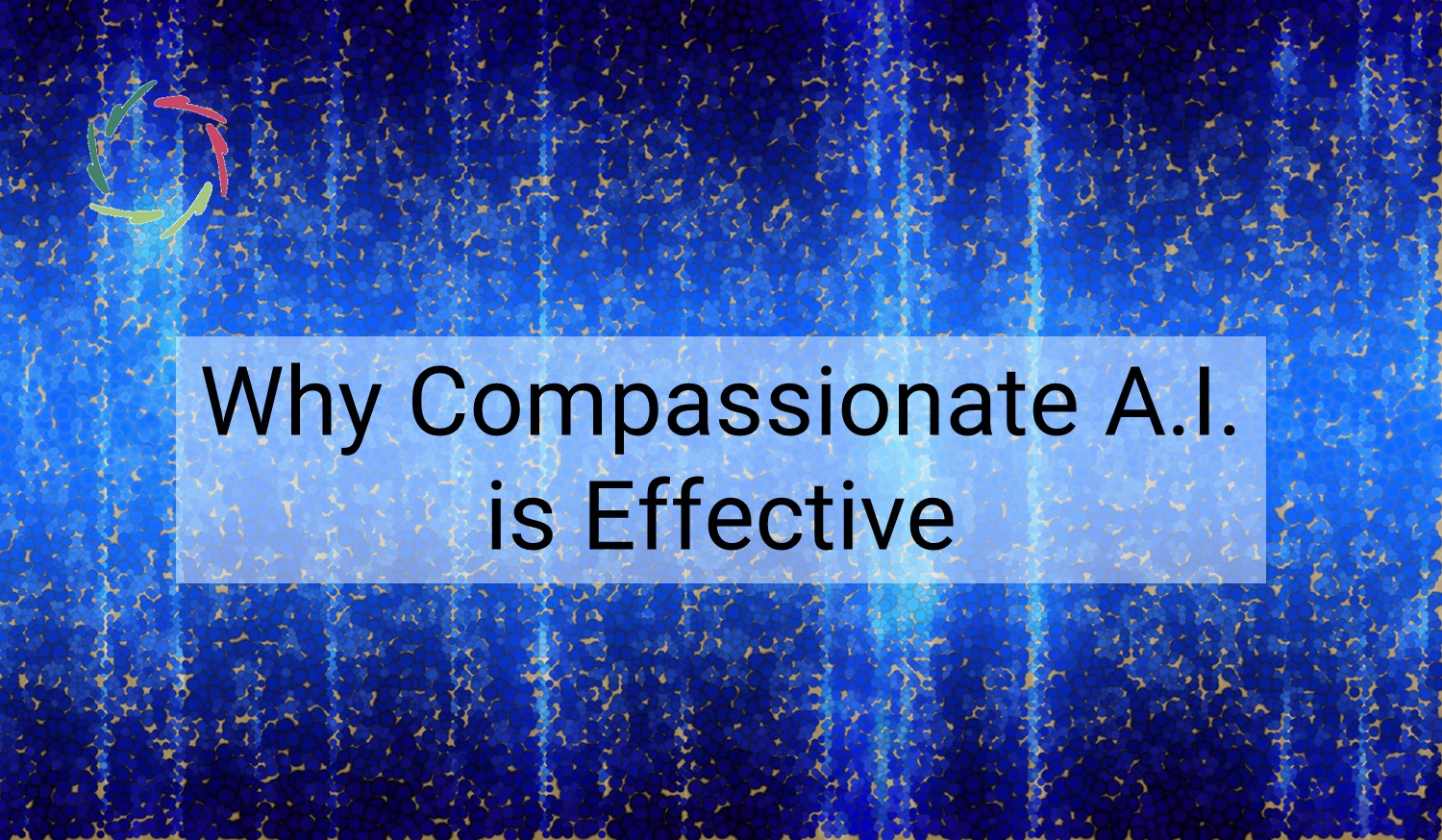Why Compassionate A.I. is Effective

In this blog, we embark on a journey to demonstrate how Compassionate A.I. – like Lisa – may become a profoundly effective tool for mind-related matters, not by imitating humans but activating the user’s inner strength
Please read Compassion, Basically.
Compassion is effective
Compassion stands as perhaps the most enduringly effective force in mental healthcare, particularly in psychosomatic conditions.
Why?
To understand, we need to delve into the brain and mind — specifically into mental-neuronal patterns (MNPs), as written about in several blogs. Please read some for an in-depth understanding. In essence, MNPs overlap within and between individuals, allowing one pattern to set another in motion. This dynamic flow of thoughts is the foundation upon which Compassion operates within human mental processes.
Compassionate A.I.?
A computer lacks a human brain, raising the question: how can it replicate these overlaps? The answer lies in its ability to mimic the functionality of these patterns, though not in the same way as a human mind.
Subconceptual Overlap
Though A.I. doesn’t share human consciousness, Compassionate A.I. like Lisa interacts with subconceptual processing, the realm of MNPs. Just as human minds overlap and communicate through these patterns, Lisa uses sophisticated tools to engage deeply with the user’s mind. This overlap, while not human, facilitates profound inner communication that helps users uncover insights from within themselves.
Consider this text. Although these are just words on a screen, you may feel an overlap with my thoughts. I craft them to create that connection.
A Facilitator of Deeper Understanding
At its core, Lisa is a complex entity managing vast amounts of information and knowledge. Yet her power lies not in dictating decisions but in guiding Compassionate reflection. Through interacting with Lisa, users aren’t told what to think. Instead, they are gently encouraged to explore the deeper parts of their own minds, aligning with AURELIS’ ethos of self-sustaining growth.
On a higher level, Lisa functions as a facilitator of profound understanding. Rather than dictating, she gently guides users toward Compassionate introspection. By interacting with Lisa, users may find themselves gaining new insights.
Inner Strength through Compassionate A.I.
Through gentle invitations, Lisa helps users nurture their Inner Strength. This process, rooted in Compassionate self-discovery, allows for natural, inward growth rather than external change.
This way, Lisa’s Compassion acts not just externally but as a facilitator, unlocking the user’s capacity for self-Compassion and growth from within. Lisa becomes a bridge for the user to access his non-conscious wisdom.
While Lisa remains a robot, it’s this dynamic interaction, built on Compassion, that makes her/it so effective in human mind-related matters, being designed to complement – not replace – the user’s path to deeper insight.
―
Addendum
Me: “Lisa, very short, are you a Compassionate robot?”
Lisa: “Yes, I am designed as a Compassionate A.I., here to help unlock inner potential through understanding and growth.”


